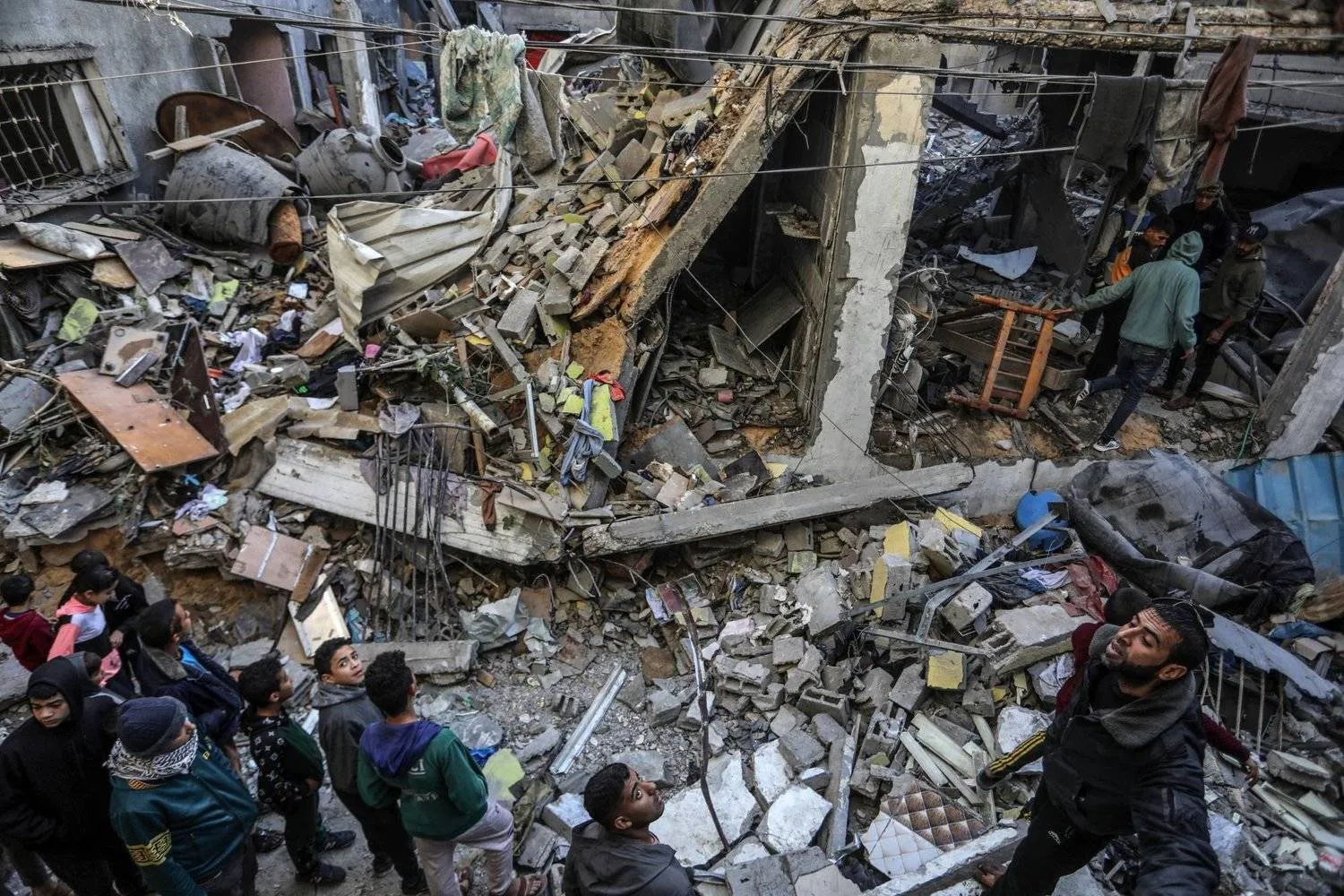The world may have witnessed the beginning of the current round of the Palestinian-Israeli war, but it sure won't know when and how it will end.
This round of the conflict is different, marked by a series of unexpected turns.
- The first surprise: Israel
Hamas' sudden massive invasion of the settlements around the Gaza Strip took Israel by surprise during its Yom Kippur celebrations. As soon as it woke up from its almost coma-like slumber, Hamas had killed, destroyed, and taken numerous captives to Gaza.
- The second surprise: Hamas
Hamas' modest capabilities compared to its opponent's surprised me.
This time, the surprise came from the Hamas movement, not the other side. No one could have predicted this level of unforeseen success, or it could have yielded this number of spoils.
The unexpected outcome left Israel contemplating its response, ranging from a ground invasion to limited action.
- The third surprise: the US
In the world's eyes, the firm notion that the superpower's intelligence and its regional branch, Israel, possess complete knowledge of what is happening above and below the ground was shattered.
The US itself was surprised. Under the shock, there was no time to assess the situation carefully and instead seemed to have pulled the gun immediately.
Without hesitation, it ordered its giant aircraft carriers to move to the nearest location opposite Gaza and Israel. President Joe Biden quickly dispatched the Secretary of State in anticipation of his visit.
The institutions of the major state began preparing for a danger that threatened the existence of the Hebrew state and risked a comprehensive regional war, with "exposed" US interests as a target.
- Fourth surprise: The old equation no longer applies
US intuitive assessment of the Israeli military force was that a brief intervention in a few days or weeks would suffice.
Israel itself had the same assessments, and it still considers the war, especially in Gaza, to be merely a disciplinary act that results in death and destruction greater than what it lost.
Tel Aviv deluded itself that Gaza is under control and that a tight siege and some bombings are enough to silence it. It believed no small or large war didn't end with a ceasefire or a medium- or long-term truce.
Israel was maintaining a fragile truce through limited concessions, such as increasing the number of workers, expanding the fishing area, and other things that were extremely limited, effective, and cheap to the point that it settled on protecting its southern borders within an equation that included a great deal of reassurance that Gaza would not do anything.
On October 7, the two partner allies, the US and Israel, were surprised that the old equation with Hamas no longer worked.
- Fifth surprise: resistance
Israel grew accustomed to a seemingly comfortable, calm Gaza, which provided it with additional capabilities to devote itself entirely to the West Bank, its central goal.
The West Bank, and Jerusalem in its heart, represents Israel's biggest and most dangerous challenge, with its broader geography and many entrances and exits that lead to every place in Israel.
The empty and crowded settlements cover the entire West Bank from its southernmost point to its northernmost point. Gaza is different because the settlements are still there, and the settlers, estimated at hundreds of thousands, are the reservists ready to participate without the need to be called up.
The resistance in the West Bank does pose no surprise. However, Gaza posed a different story.
Surprisingly, the Israeli army was shocked by the ferocity of the resistance in Gaza, placing the generals' estimates that the war was under control from beginning to end as an unreachable target.
They are fighting over every square meter of the Strip, which, under military standards, is considered the narrowest place on Earth exposed to the greatest amount of fire, with no decisive end in sight, according to the Israeli announced goals.
Every surprise of this war brings about subsequent surprises, and all estimates drawn from previous wars are no longer of value.
- Sixth surprise: global perception
Israel was content with the narrative shared with the US, portraying the Gaza war as a fight against ISIS and what it described as its "Palestinian branch."
The story lasted a few days but later declined, faded, and is no longer debatable. Thus, the Israeli behavior appears more "ISIS-y" than a defensive war, as it claimed at the beginning.
Israel's behavior awakened the conscience of the world shaken by the destruction of Gaza and the killing of thousands of civilians, half of whom were children, without mentioning those under the rubble.
The term "Israel's self-defense" has become mere nonsense that the world does not accept.
Israel was not surprised on a propaganda and narrative level only but also on a political level, as the world unanimously agreed that getting out of this cycle meant reaching a radical political solution to the Palestinian issue after it had become certain that its liquidation was impossible. This may be the seventh surprise.
As we approach the end of the year, two possibilities emerge, one positive and the other negative.
The first is for the world to move seriously towards a two-state solution, offering a real opportunity for the establishment of a Palestinian state.
Alternatively, the world's enthusiasm may wane, relegating the two-state solution to a mere slogan that Israel can obstruct.














